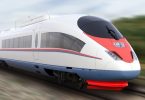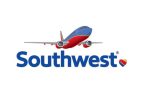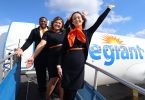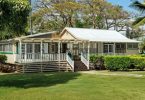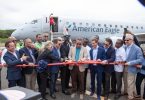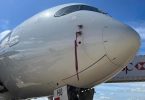The aviation industry is flying into a “perfect storm” that could halve Ryanair’s profits next year, the low cost carrier warned yesterday.
Announcing a 27pc slump in profits for the three months ending in December, chief executive Michael O’Leary said the gloomy outlook was prompted by the combined impact of “higher oil prices, poor consumer demand, weaker sterling and higher costs at airports such as Dublin and Stansted”.
Travel
The ominous remarks drove Ryanair’s shares 13pc lower in morning trading, however they later recovered to close down just 2pc.
Mr O’Leary later added that an impending economic recession could benefit Ryanair in the “long term” as it would “bring an end to the debate about environmental taxes on air travel”.
And despite the pessimism for the year ending March 2009, Ryanair remains on track to meet consensus earnings targets for the current financial year.
Meeting those targets will see Ryanair record a 17.5pc jump in net profits to the year ending March 2008, delivering earnings of €470m.
The airline also told the market it received board approval for a further €200m share buyback, the second in the airline’s 10-year history as a quoted company.
That buyback would bolster earnings per share (EPS) and was a “demonstration” of the airline’s positive sentiments for “the medium and long term”, Mr O’Leary said yesterday. In the short term, every $1 increase in oil prices adds another €14m to Ryanair’s average cost base.
For 2007/8, Ryanair has enjoyed average prices of about $65. This price could rise as high as $85 for 2008/9, Mr O’Leary warned, in a development that could add €280m to the airline’s costbase.
Economically, Mr O’Leary said he was “worried about a slip into recession not just in the UK but across Europe. The UK will be of more importance to us given the profile of new bases this year,” he added.
Three new bases (Belfast, Bristol, Birmingham and Bristol) are in the UK.
The key question, Mr O’Leary said, was whether Ryanair could get another 3pc or 4pc out of fares to compensate for higher fuel prices.
“If there’s a recession across Europe, I’m just not sure that our competitors will be able to levy a further increase (in fuel surcharges), in which case we would not see our fares trend up behind those,” he said.
Airlines facing into uncertain financial times typically cut back on expansion plans to keep fares and profits up.
Mr O’Leary said yesterday he could see “no reason” to scale back Ryanair’s plans to grow capacity by 20pc each year.
“Part of that is because we can’t (constrain growth), we confirm our options on aircraft two years out,” he said. “And there are some opportunities that only crop up during a downturn”.
Meanwhile, he is preparing to ground a “significant” percentage of its Dublin fleet next winter in protest the airport’s high charges. Ryanair now has 22 planes based at Dublin.
Mr O’Leary said that prices at both Dublin and London’s Stansted didn’t “reflect market trends” as they were moving sharply upwards.
independent.ie




